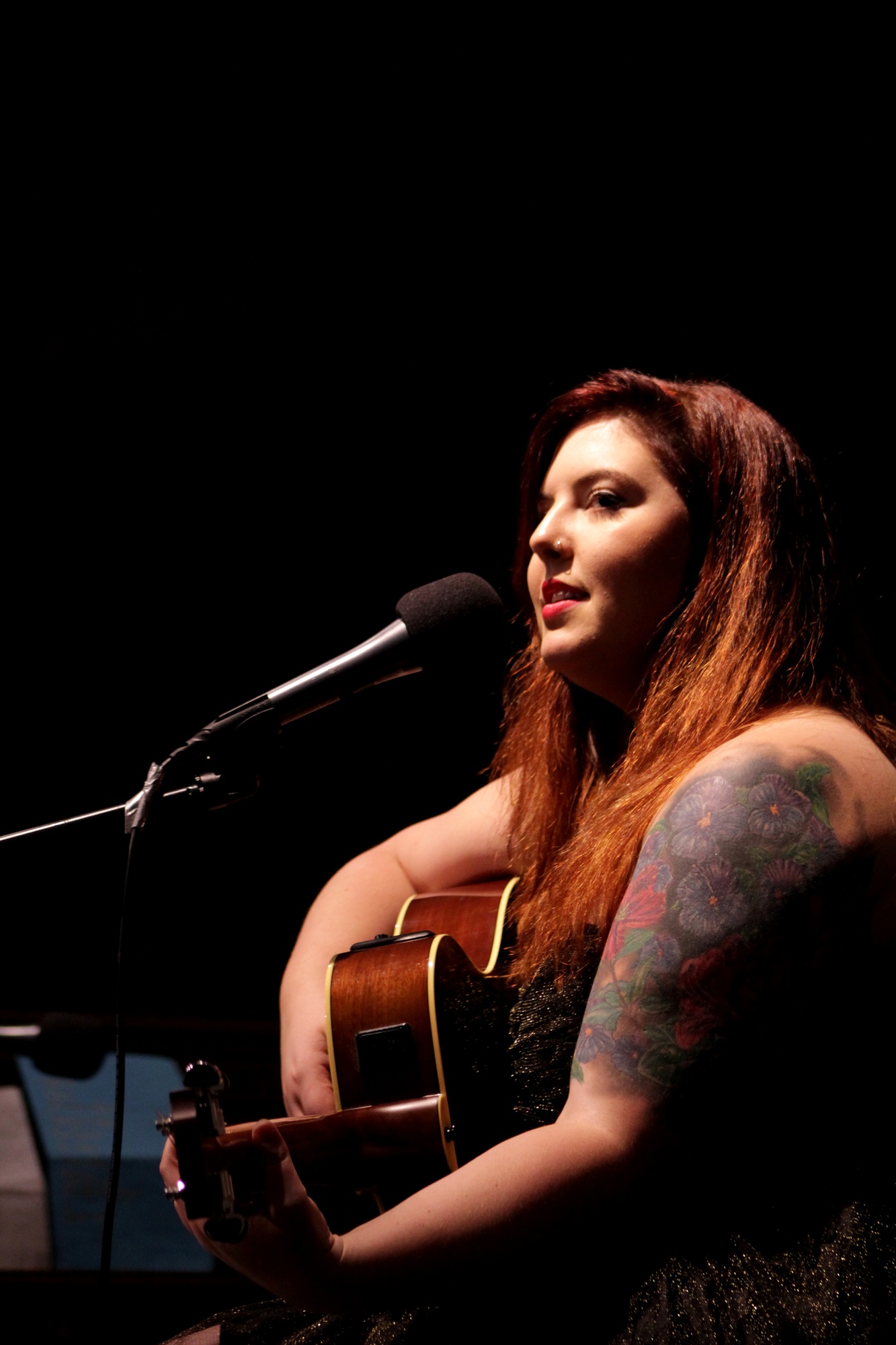
News
Summers Will Not Finish Semester of Teaching as Harvard Investigates Epstein Ties

News
Harvard College Students Report Favoring Divestment from Israel in HUA Survey

News
‘He Should Resign’: Harvard Undergrads Take Hard Line Against Summers Over Epstein Scandal

News
Harvard To Launch New Investigation Into Epstein’s Ties to Summers, Other University Affiliates

News
Harvard Students To Vote on Divestment From Israel in Inaugural HUA Election Survey
A Sunday with Mary Lambert

Poet, singer, and songwriter Mary Lambert wants to move to Massachusetts. She wants to give everyone in the audience a hug, and she wants a unicorn. After watching her in Sunday night’s performance of “Not Crying on Sundays,” hosted by Radcliffe Union of Students, Queer Students Alliance, and Speak Out Loud, I wanted to give Mary Lambert all of those things.
Lambert is best known for writing Macklemore’s “Same Love” in which she is also the featured singer. The song has become an anthem for the BGLTQ movement and, recently, an anthem for opponents of the Defense of Marriage Act. This year, Lambert, along with Macklemore and Ryan Lewis, won the VMA award for Best Music Video with a Social Message.
Since the release of “Same Love” in July of 2012, Lambert released a solo album, “Letters Don’t Talk,” and, with the artistic freedom that a fan-base provides, has decided to direct her artistic work towards young activists, queer youth, insecure women, and unlikely fans from all backgrounds. Her lyrics are image-heavy, equal parts devastating and humorous. In her own style of mixed poetry and music, Lambert is able to integrate personal experience with a reassuring message, producing a warm aura on stage. In her spoken word/song called “I Know Girls (Body Love)”—which she performed on Sunday—Lambert implores her listeners to “love your body like your mother loved your baby feet” and “remember the first time you touched someone with the sole purpose of learning all of them.”
Even with the profound political relevance for which Lambert’s music has become famous, she is incredibly personable and humble in concert. Adorable and quirky don’t quite cover Lambert’s presence—she sat down to her piano in a sparkly, strapless dress that she said she “wore just for us.” Between songs, she repeated how grateful she was to the Harvard students for hosting her. “I’m also bipolar,” she confessed at the beginning of the concert in a spirit of openness, adding, “You’re welcome.”
After starting on a somewhat depressed note with a poem about her own experience with rape, she turned the mood around by mentioning her love of Massachusetts town names. “Chicopee” seemed to particularly delight her, and after repeating the name in a squeaky voice, she obliged her listeners by fulfilling a request from the audience.
“I hear it is someone’s six-month-iversary,” Lambert said, and she proceeded to sing one of her love songs to the couple who had requested it (The piece was “My Moon” from her debut album “Letters Don’t Talk”). Lambert consistently tries to connect with her listeners and be genuine in her themes. Her songs and poems are not just political, and her lyrics are hymns of first love, defeated insecurity, and mental health and body image issues.
By the end of the concert, Lambert and a few of the audience members broke her rule—there was some crying on Sunday. It was difficult to tell whether Lambert or the audience were more grateful for the warm atmosphere generated by the successful performance.
Lambert sings for those young people whose bodies or sexualities never quite seem to follow what society says is right. The goal of her music is to provide solace from societal struggles with her rich and wonderful voice, and she held true to that value throughout the performance. “We’re perpetually waiting by the phone for someone to pick up and tell us that we did good,” she sang from “(Body Love).”
“Well, you did good.”
—Staff writer Virginia R. Marshall can be reached at virginia.marshall@thecrimson.com.
Want to keep up with breaking news? Subscribe to our email newsletter.
